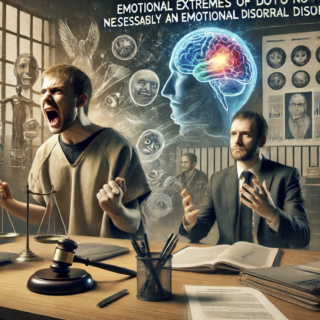Battered Woman Syndrome: Understanding the Impact and Legal Implications
Battered Woman Syndrome (hereinafter "BWS") is a psychological condition that describes the mental and emotional state of women who have been subjected to prolonged domestic violence. First introduced by psychologist Lenore Walker in the late 1970s, BWS has since gained recognition both in the psychological community and in legal contexts. Understanding BWS is crucial for recognizing the complex dynamics of abusive relationships and the profound impact these relationships can have on victims. What is Battered Woman Syndrome? Battered Woman Syndrome is a subset of [...]











